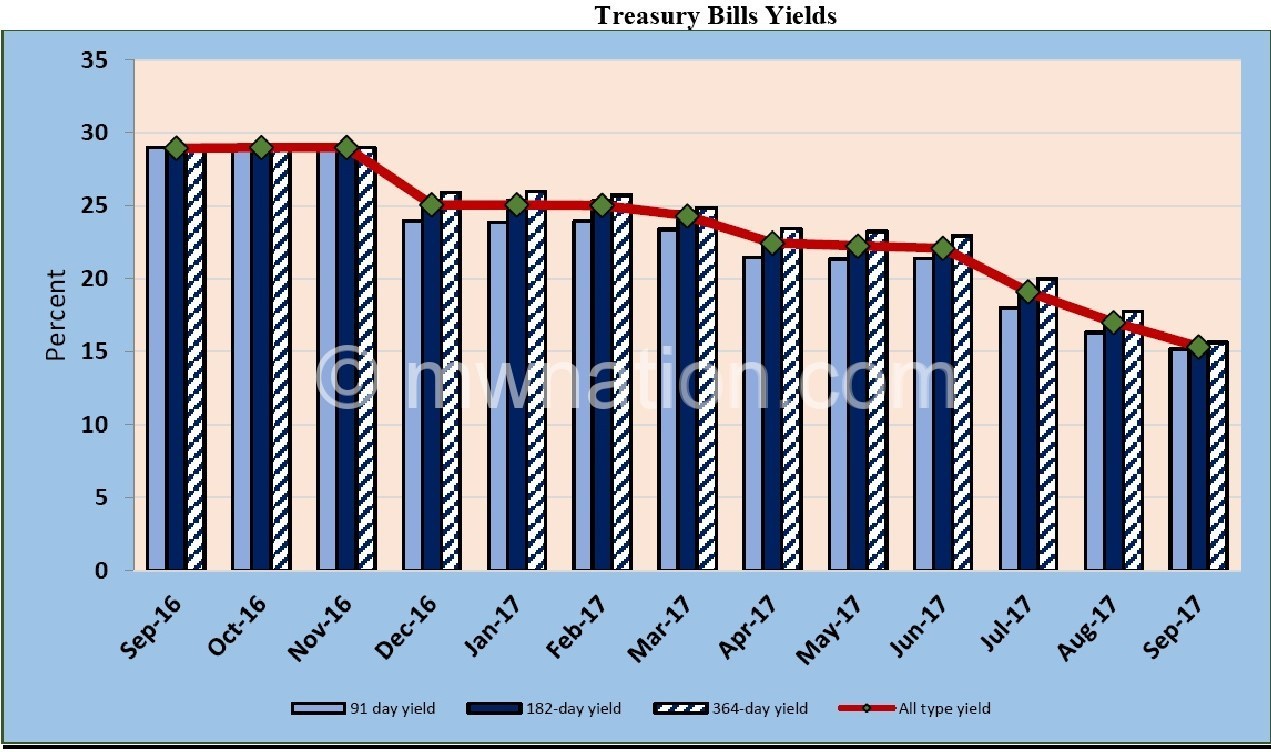Treasury bill yields drop to 15.3%
Treasury bill (T-bills) rates—one of the determinants of commercial bank interest rates—fell on all tenors in September compared to the previous month, according to the Reserve Bank of Malawi (RBM).
This is an indication that the government securities demand might be less than supply.
Data provided by RBM indicates that in September 2017, the average all type yield declined to 15.1 percent from its August 2017 position of 16.3 percent, attracting K36.1 billion. This compares with K72.6 billion that was tendered in the previous month’s auctions hence a decrease of K36.5 billion.
According to the September 2017 RBM monthly economic report, the 364-day tenor declined the most from 17.0 percent in the previous month to 15.3 percent, thus shedding 2.2 percentage points.
On the other hand, the 182 and 91 day tenor settled at the respective yields of 15.2 percent and 15.1 percent from 16.9 percent and 16.3 percent after losing 1.7 and 1.1 percentage points.
“The decline in the rates was buoyed by excess liquidity that prevailed in the market during the period as well as the market’s anticipation of downward adjustment of the policy rate,” reads the report in part.
Apparently, authorities have eased on domestic borrowing sticking to its fiscal rules in recent times.
In his State of the Nation Address in May this year, while admitting that interest charges for domestic debt, which is characterised by short-term debt, remains high, President Peter Mutharika said government is strengthening debt management practices through adherence to public debt policies and medium term debt strategies.
In his 2017/18 National Budget Statement, Finance, Economic Planning and Development Minister Goodall Gondwe said it is projected that domestic net borrowing will be reduced from K63.6 billion (1.5 percent of GDP) to K27.5 billion (0.6 percent of GDP).
Gondwe said the budgetary support that government has received will be used to repay domestic borrowing and the huge private sector arrears amounting to K155 billion that were accumulated by June 2014.





